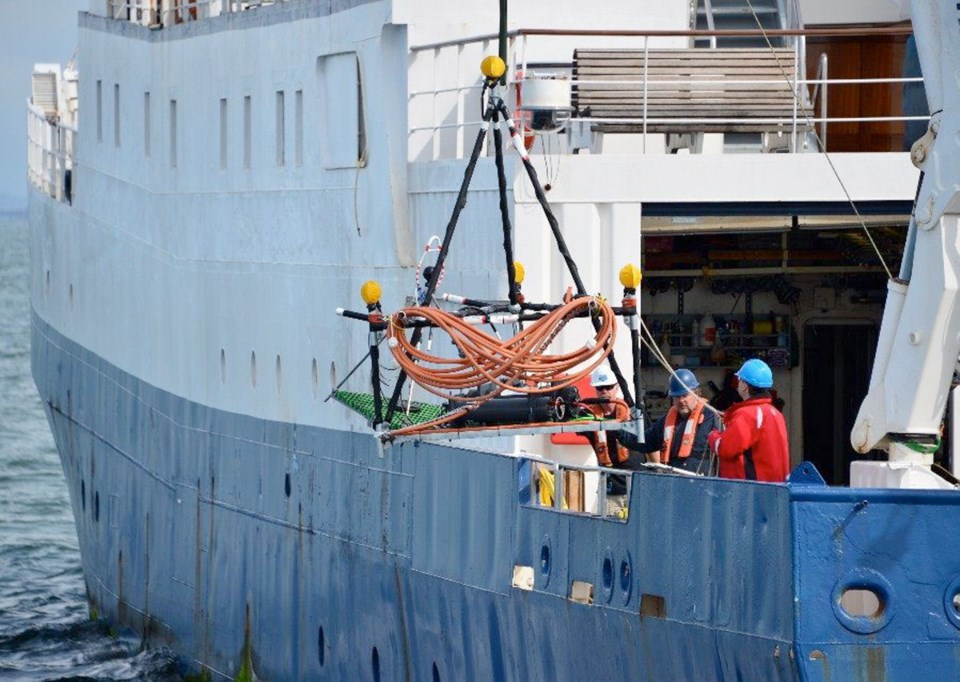Comprehensive scientific research into the acoustic habitat of marine mammals, using one of the most advanced undersea hydrophone systems in the world, is giving scientists a better understanding of the fragile Salish Sea ecosystem — and the need to protect it.
The Saturna Island Marine Research and Education Society is a volunteer, non-profit organization bringing marine research and educational programs to Saturna Island.
Its Salish Sea Acoustic Monitoring and Educational Outreach Project uses data from an array of hydrophones installed at East Point and Monarch Head on Saturna Island to monitor the impact of human activity on the area’s marine ecosystem, particularly the endangered southern-resident orcas and other whale species.
The deployment of the world-class hydrophones is a collaboration with the University of Victoria and Ocean Networks Canada.
“Boundary Pass is a marine mammal hotspot,” said Lauren McWhinnie, scientific director for the group.
“It is a main transit point for the whales — but also a main shipping route.”
The project’s objective is to make a significant contribution to public awareness about the fragile ecosystem of the Salish Sea — and how threats can be mitigated.
While underwater noise monitoring is important, McWhinnie stresses that the added contribution of citizen scientists keeping a lookout on land also makes a difference.
“The hydrophones record continuously. However, they can only tell us if whales are present if they’re vocalizing. So having citizen observations to complement our hydrophone data gives us a better overall picture of how often whales are using this area,” she said.
She says that land-based observations are less invasive to the mammals than people on boats.
“We know from other studies that the whales stop calling each other when the marine environment is noisy [when ships are passing] and resume when it quietens down.”
When she is able to combine the acoustical recording with land-based observations, she can form a more complete picture of the circumstances behind the calls — or lack thereof.
Salish Sea Acoustic Monitoring and Educational Outreach Project, funded in part by the Victoria Foundation, will use the data from the monitoring network, along with additional information from collaborating individuals and organizations, to produce an inventory of educational and outreach material.
The project’s objectives are to use the material to further public awareness about the Salish Sea ecosystem and impart a deeper understanding of its marine-mammal population.
For more information, go to saturnamarineresearch.ca.
